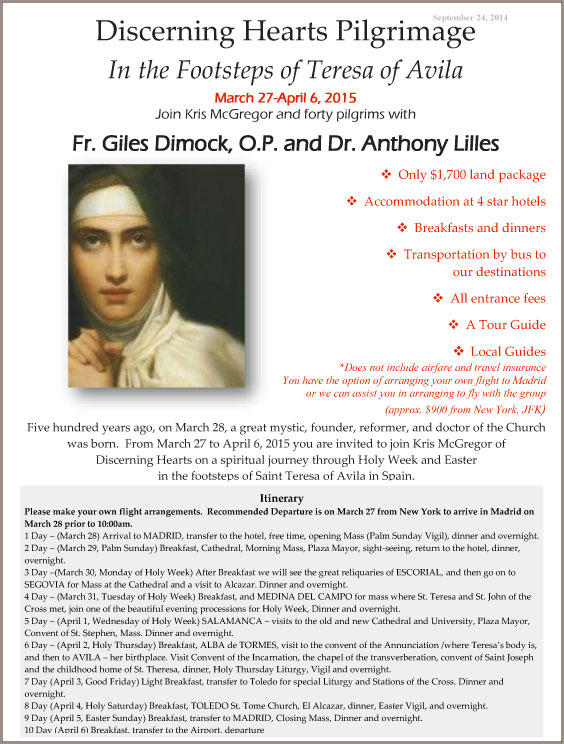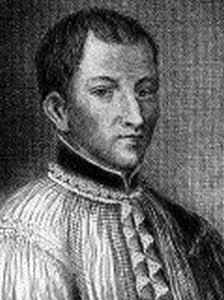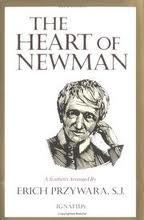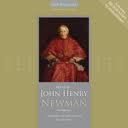Episode 33- The Holy Rule of St. Benedict: A Spiritual Path for Today’s World with Fr. Mauritius Wilde O.S.B., 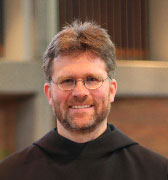 PhD.
PhD.
“The Life of St. Benedict pt 6”
We continue our conversation on the life of St. Benedict by using the biography penned by St. Gregory the Great.  In this episode St. Benedict deals with serious temptation.  If God calls you to restrain from something for the sake of His Kingdom, for the greater Love, this can include suffering and tension. We often try to avoid that.  St. Benedict desires to  be free and detached.  So Benedict takes action in order to be open to  grace and the love of God.   His method in this story may seem archaic to some, but it shouldn’t stop us from examining how we deal with temptation.
[powerpress]
From the Life of Our Most Holy Father St. Benedict by St. Gregory the Great:
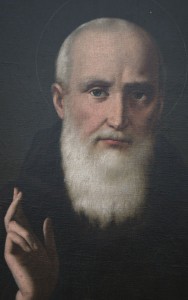
 CHAPTER I.
The holy man being on a certain day alone, the tempter was at hand; for a little black bird, commonly called an ousel, began to fly about his face, and that so near as the holy man, if he would. might have taken it with his hand; but no sooner had he made the sign of the cross than the bird vanished. When presently so great a carnal temptation assailed him, that before the holy man had never felt the like. For the remembrance of a woman which some time he had seen, was so lively represented to his fancy by the wicked spirit, and so vehemently did her image inflame his breast with lustful desires, that almost overcome by pleasure, he was determining to leave the wilderness. But suddenly assisted with divine
grace he came to himself, and, seeing near him a thicket full of nettles and briars, he threw off his garments and cast himself naked into the midst of those sharp thorns and nettles, where he rolled himself so long, that, when he rose up, all his body was pitifully rent; thus by the wounds of his flesh he cured those of his soul, by turning pleasure into pain; and by the vehemence of outward torments he extinguished the unlawful flame which burnt within overcoming sin by changing the fire. After which time, as he himself related to his disciples, he was so free from the like temptation, that he never felt any such motion.
 For more information about the ministry of the the Missionary Benedictines of Christ the King Priory in Schuyler, Nebraska visit here:
For more information about the ministry of the the Missionary Benedictines of Christ the King Priory in Schuyler, Nebraska visit here:
This entry was posted on Thursday, December 4th, 2014 at 1:30 pm
You can follow any responses to this entry through the RSS 2.0 feed.
What is old is new again. That’s why the Fathers are so important, they’ve done battle with the heresies that continue to plaque our Church even today. Also in his writings you can see the “Theology of the Body”…1800 years or so before we hear from Pope John Paul II. Faith and Reason can live in harmony…then knew it then and we can be confident about that now.
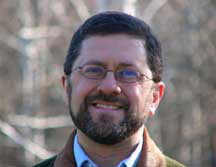 Take a listen to Mike Aquilna, who does a great job giving us the life of this early, early father of the Church, Clement of Alexandria.
Take a listen to Mike Aquilna, who does a great job giving us the life of this early, early father of the Church, Clement of Alexandria.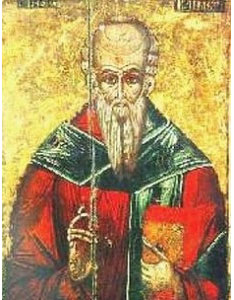
[powerpress]
Here in a very small nutshell is an overview of St. Clement of Alexandria –
from wikipedia –
Titus Flavius Clemens (c.150 – c. 215), known as Clement of Alexandria (to distinguish him from Clement of Rome), was a Christian theologian and the head of the noted Catechetical School of Alexandria. Clement is best remembered as the teacher of Origen. He united Greek philosophical traditions with Christian doctrine and valued gnosis that with communion for all people could be held by common Christians specially chosen by God.Though he constantly opposes the concept of gnosis as defined by the Gnostics, he used the term “gnostic” for Christians who had attained the deeper teaching of the Logos.He developed a Christian Platonism. He presented the goal of Christian life as deification, identified both as Platonism’s assimilation into God and the biblical imitation of God.
Like Origen, he arose from Alexandria’s Catechetical School and was well versed in pagan literature.Origen succeeded Clement as head of the school.Alexandria had a major Christian community in early Christianity, noted for its scholarship and its high-quality copies of Scripture.
Clement is counted as one of the early Church Fathers. He advocated a vegetarian diet and claimed that the apostles Peter, Matthew, and James the Just were vegetarians. – wikipedia
Great trilogy of St. Clement of Alexandria
The trilogy into which Clement’s principal remains are connected by their purpose and mode of treatment is composed of:
- the Protrepticus (“Exhortation to the Greeks”)
- the Paedagogus (“Instructor”)
- the Stromata (“Miscellanies”)
The first book deals with the religious basis of Christian morality, the second and third with the individual cases of conduct.
Tags: alexanderia, Church, clement of alexandria, early church fathers, faith and reason, father, father of the church, fathers mike, fathers of the church, gnostics, heresy, mike aquilina, Mike Aquilna
This entry was posted on Thursday, December 4th, 2014 at 8:26 am
You can follow any responses to this entry through the RSS 2.0 feed.
[powerpress]
A commentary on the Diatessaron by St Ephrem
Keep watch: He is to come again
To prevent his disciples from asking the time of his coming, Christ said: About that hour no one knows, neither the angels nor the Son. It is not for you to know times or moments. He has kept those things hidden so that we may keep watch, each of us thinking that he will come in our own day. If he had revealed the time of his coming, his coming would have lost its savour: it would no longer be an object of yearning for the nations and the age in which it will be revealed. He promised that he would come but did not say when he would come, and so all generations and ages await him eagerly.
Though the Lord has established the signs of his coming, the time of their fulfilment has not been plainly revealed. These signs have come and gone with a multiplicity of change; more than that, they are still present. His final coming is like his first. As holy men and prophets waited for him, thinking that he would reveal himself in their own day, so today each of the faithful longs to welcome him in his own day, because Christ has not made plain the day of his coming.
He has not made it plain for this reason especially, that no one may think that he whose power and dominion rule all numbers and times is ruled by fate and time. He described the signs of his coming; how could what he has himself decided be hidden from him? Therefore, he used these words to increase respect for the signs of his coming, so that from that day forward all generations and ages might think that he would come again in their own day.
Keep watch; when the body is asleep nature takes control of us, and what is done is not done by our will but by force, by the impulse of nature. When deep listlessness takes possession of the soul, for example, faint-heartedness or melancholy, the enemy overpowers it and makes it do what it does not will. The force of nature, the enemy of the soul, is in control.When the Lord commanded us to be vigilant, he meant vigilance in both parts of man: in the body, against the tendency to sleep; in the soul, against lethargy and timidity. As Scripture says: Wake up, you just, and I have risen, and am still with you; and again, Do not lose heart. Therefore, having this ministry, we do not lose heart.
Excerpts from the English translation of The Liturgy of the Hours (Four Volumes) © 1974, International Commission on English in the Liturgy Corporation. All rights reserved.
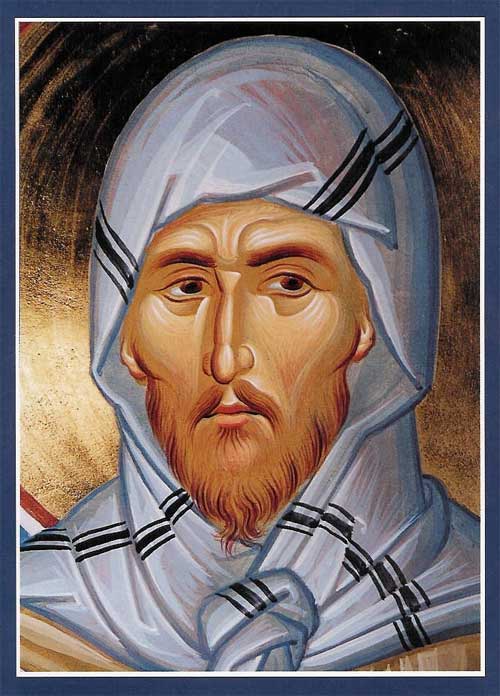
This entry was posted on Thursday, December 4th, 2014 at 1:51 am
You can follow any responses to this entry through the RSS 2.0 feed.
[powerpress]
From The Statement of Faith by St. John Damascene, priest
You have called me, Lord, to minister to your people
O Lord, you led me from my father’s loins and formed me in my mother’s womb. You brought me, a naked babe, into the light of day, for nature’s laws always obey your commands.
By the blessing of the Holy Spirit, you prepared my creation and my existence, not because man willed it or flesh desired it, but by your ineffable grace. The birth you prepared for me was such that it surpassed the laws of our nature. You sent me forth into the light by adopting me as your son and you enrolled me among the children of your holy and spotless Church.
You nursed me with the spiritual milk of your divine utterances. You kept me alive with the solid food of the body of Jesus Christ, your only-begotten Son for our redemption. And he undertook the task willingly and did not shrink from it. Indeed, he applied himself to it as though destined for sacrifice, like an innocent lamb. Although he was God, he became man, and in his human will, became obedient to you, God his Father, unto death, even death on a cross.
In this way you have humbled yourself, Christ my God, so that you might carry me, your stray sheep, on your shoulders. You let me graze in green pastures, refreshing me with the waters of orthodox teaching at the hands of your shepherds. You pastured these shepherds, and now they in turn tend your chosen and special flock. Now you have called me, Lord, by the hand of your bishop to minister to your people. I do not know why you have done so, for you alone know that. Lord, lighten the heavy burden of the sins through which I have seriously transgressed. Purify my mind and heart. Like a shining lamp, lead me along the straight path. When I open my mouth, tell me what I should say. By the fiery tongue of your Spirit make my own tongue ready. Stay with me always and keep me in your sight.
Lead me to pastures, Lord, and graze there with me. Do not let my heart lean either to the right or to the left, but let your good Spirit guide me along the straight path. Whatever I do, let it be in accordance with your will, now until the end.
And you, O Church, are a most excellent assembly, the noble summit of perfect purity, whose assistance comes from God. You in whom God lives, receive from us an exposition of the faith that is free from error, to strengthen the Church, just as our Fathers handed it down to us.
Excerpts from the English translation of The Liturgy of the Hours (Four Volumes) © 1974, International Commission on English in the Liturgy Corporation. All rights reserved.
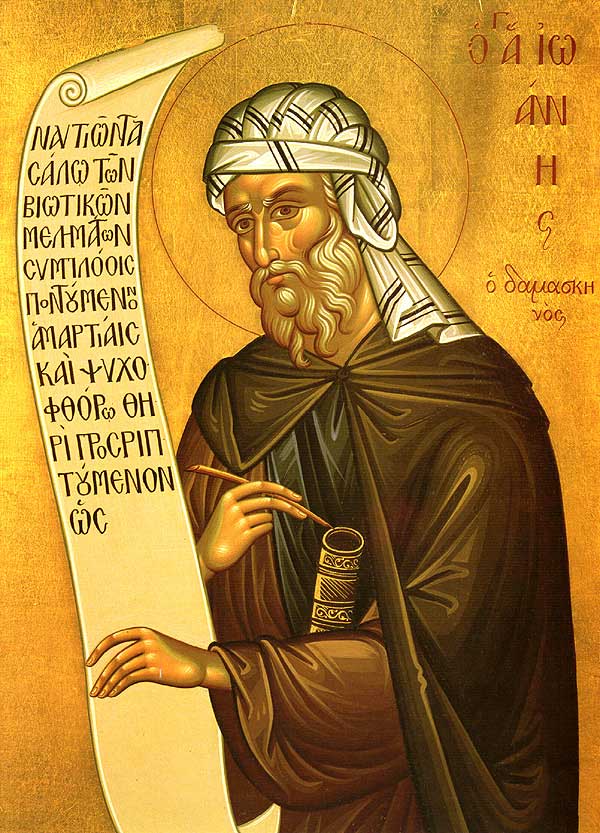
This entry was posted on Thursday, December 4th, 2014 at 12:44 am
You can follow any responses to this entry through the RSS 2.0 feed.
[powerpress]
From a sermon by Saint Bernard, abbot
The Three Comings of the Lord
We know that there are three comings of the Lord. The third lies between the other two. It is invisible, while the other two are visible. In the first coming he was seen on earth, dwelling among men; he himself testifies that they saw him and hated him. In the final coming all flesh will see the salvation of our God, and they will look on him whom they pierced. The intermediate coming is a hidden one; in it only the elect see the Lord within their own selves, and they are saved. In his first coming our Lord came in our flesh and in our weakness; in this middle coming he comes in spirit and in power; in the final coming he will be seen in glory and majesty.
In case someone should think that what we say about this middle coming is sheer invention, listen to what our Lord himself ways: If anyone loves me, he will keep my word, and my Father will love him, and we will come to him. There is another passage of Scripture which reads: He who fears God will do good, but something further has been said about the one who loves, that is, that he will keep God’s word. Where is God’s word to be kept? Obviously in the heart, as the prophet says: I have hidden your words in my heart, so that I may not sin against you.
Keep God’s word in this way. Let it enter into your very being, let it take possession of your desires and your whole way of life. Feed on goodness, and your soul will delight in its richness. Remember to eat your bread, or your heart will wither away. Fill your soul with richness and strength.
Because this coming lies between the other two, it is like a road on which we travel from the first coming to the last. In the first, Christ was our redemption; in the last, he will appear as our life; in this middle coming, he is our rest and consolation.
If you keep the word of God in this way, it will also keep you. The Son with the Father will come to you. The great Prophet who will build the new Jerusalem will come, the one who makes all things new. This coming will fulfill what is written: As we have borne the likeness of the earthly man, we shall also bear the likeness of the heavenly man. Just as Adam’s sin spread through all mankind and took hold of all, so Christ, who created and redeemed all, will glorify all, once he takes possession of all.
Excerpts from the English translation of The Liturgy of the Hours (Four Volumes) © 1974, International Commission on English in the Liturgy Corporation. All rights reserved.
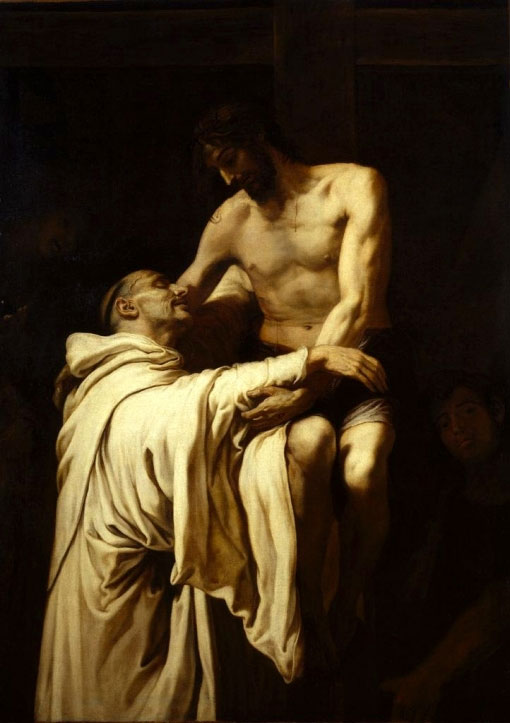
St. Bernard
This entry was posted on Wednesday, December 3rd, 2014 at 3:38 pm
You can follow any responses to this entry through the RSS 2.0 feed.
[powerpress]
Please visit the Discerning Hearts Our Lady of Guadalupe page for the text and audio for the remaining days.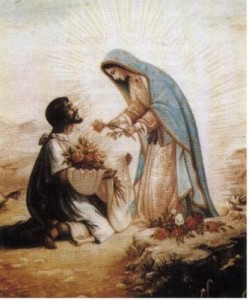
Pray to Our Lady of Guadalupe
(Pope John Paul II, January 25, 1979)
O Immaculate Virgin, mother of the true God and mother of the Church! You, who … revealed your clemency and your pity to all those who ask for your protection, hear the prayer that we address to you with filial trust, and present it to your Son Jesus, our sole Redeemer.
Mother of Mercy, teacher of hidden and silent sacrifice, to you … we dedicate on this day all our being and all our love. We also dedicate to you our life, our work, our joys, our infirmities, and our sorrows.
Grant peace, justice, and prosperity to our people, for we entrust to your care all that we have and all that we are, our Lady and Mother.
We wish to be entirely yours and to walk with you along the way of complete faithfulness to Jesus Christ and his Church: hold us always in your loving hand.
Virgin of Guadalupe, Mother of the Americas, we pray to you for all the bishops, that they may lead the faithful along paths of intense Christian life, of love and humble service of God and souls. Grant to our homes the grace of loving and respecting life in its beginnings, with the same love with which you conceived in your womb the life of the Son of God.
Blessed Virgin Mary, protect our families, so that they may always be united, and bless the upbringing of our children. Thus, Most Holy Mother, with the peace of God in our conscience, with our hearts free from evil and hatred, we will be able to bring to all true joy and true peace, which come to us from your Son, our Lord Jesus Christ, who with God the Father and the Holy Spirit, lives and reigns forever and ever.
Amen.
Day One
Holy Mother, you appeared to Saint Juan Diego as a
maiden of his own race to reveal that you are the mother
of all God’s children. Draw close to your heart those who
are facing an unexpected pregnancy, so that like you they
will say yes to the new life with which God has blessed them.
Our Father … Hail Mary … Glory be
Tags: catholic, catholic podcast, catholic prayer, cathollc spirituality
This entry was posted on Wednesday, December 3rd, 2014 at 12:10 am
You can follow any responses to this entry through the RSS 2.0 feed.
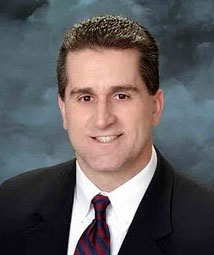 “Behold Your Mother – A Biblical and Historical Defense of the Marian Doctrines”, by Catholic apologist Tim Staples,  is  outstanding! For those who are unfamiliar or even unsure what the Church teaches about the Mother of God, this is a tremendous entry point for your study.  For all who have a great devotion to the Blessed Virgin Mary, this is the book to have in order to help articulate the truths of Marian Dogma clearly to others!   Director of Apologetics and Evangelization for Catholic Answers, Tim Staples, has authored a work that is easy to navigate and filled with solid biblical and historical reasons for what we as Catholics believe about Mary. A must for the Catholic library in every parish and home!  A GREAT book for Advent reflection and study, as well as a gift for family and friends!
“Behold Your Mother – A Biblical and Historical Defense of the Marian Doctrines”, by Catholic apologist Tim Staples,  is  outstanding! For those who are unfamiliar or even unsure what the Church teaches about the Mother of God, this is a tremendous entry point for your study.  For all who have a great devotion to the Blessed Virgin Mary, this is the book to have in order to help articulate the truths of Marian Dogma clearly to others!   Director of Apologetics and Evangelization for Catholic Answers, Tim Staples, has authored a work that is easy to navigate and filled with solid biblical and historical reasons for what we as Catholics believe about Mary. A must for the Catholic library in every parish and home!  A GREAT book for Advent reflection and study, as well as a gift for family and friends!
[powerpress]
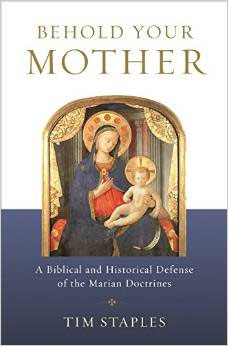 You can find the book here
You can find the book here
Tim Staples respectfully but clearly answers every conceivable Protestant objection to Mary, the Mother of God. With the street cred of one who has been there, Tim backs up his words with Scripture every time. His answers are exhaustive but not exhausting! An invaluable book for thoughtful, truth-seeking Christians. —-Fr. Mitch Pacwa, S.J., EWTN host and author of Mary: Virgin, Mother, and Queen
The greatest doctrinal obstacle to my return to the Catholic Church was fear that Catholics had no basis for or boundaries on the Marian dogmas. If only Tim Staples had written Behold Your Mother then! His presentation is fearless, precise, biblically wise, historically rooted, and popular in expression. He addresses objections I haven t seen addressed elsewhere. I can t think of a more insightful, comprehensive single volume that persuades so thoroughly. Great, truly great, piece of apologetics. — Al Kresta, president, Ave Maria Communications and host of Kresta in the Afternoon
Tim Staples presents a remarkable defense of the six major Marian doctrines, including a veritable compendium of source material from the Bible, Fathers, and Church documents. He gives clear presentations of the controversial issues surrounding each doctrine, makes careful definitions and distinctions, and thinks his way through each issue as if he were having a conversation with the reader. Even well-informed readers will benefit from this engaging book. – –Fr. Robert J. Spitzer, S.J., president, Magis Center of Reason and Faith
This entry was posted on Tuesday, November 25th, 2014 at 5:33 pm
You can follow any responses to this entry through the RSS 2.0 feed.
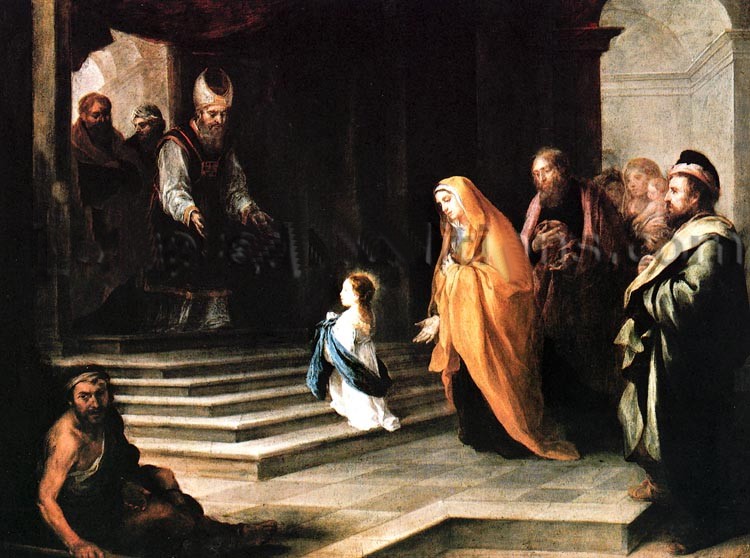
The Presentation of Mary in the Temple
[powerpress]
From a sermon by Saint Augustine
She believed by faith; She conceived by faith
Stretching out his hand over his disciples, the Lord Christ declared: Here are my mother and my brothers; anyone who does the will of my Father who sent me is my brother and my sister and my mother. I would urge you to ponder these words. Did the Virgin Mary, who believed by faith and conceived by faith, who was the chosen one from whom our Savior was born among men, who was created by Christ before Christ was created in her –- did she not do the will of the Father? Indeed the blessed Mary certainly did the Father’’s will, and so it was for her a greater thing to have been Christ’’s disciple than to have been his mother, and she was more blessed in her discipleship than in her motherhood. Hers was the happiness of first bearing in her womb him whom she would obey as her master.
Now listen and see if the words of Scripture do not agree with what I have said. The Lord was passing by and crowds were following him. His miracles gave proof of divine power, and a woman cried out: Happy is the womb that bore you, blessed is that womb! But the Lord, not wishing people to seek happiness in a purely physical relationship, replied: More blessed are those who hear the word of God and keep it. Mary heard God’’s word and kept it, and so she is blessed. She kept God’’s truth in her mind, a nobler thing than carrying his body in her womb. The truth and the body were both Christ: he was kept in Mary’’s mind insofar as he is truth, he was carried in her womb insofar as he is man; but what is kept in the mind is of a higher order than what is carried in the womb.
The Virgin Mary is both holy and blessed, and yet the Church is greater than she. Mary is a part of the Church, a member of the Church, a holy, an eminent -– the most eminent -– member, but still only a member of the entire body. The body undoubtedly is greater than she, one of its members. This body has the Lord for its head, and head and body together make up the whole Christ. In other words, our head is divine -– our head is God.
Now, beloved, give me your whole attention, for you also are members of Christ; you also are the body of Christ. Consider how you yourselves can be among those of whom the Lord said: Here are my mother and my brothers. Do you wonder how you can be the mother of Christ? He himself said: Whoever hears and fulfills the will of my Father in heaven is my brother and my sister and my mother. As for our being the brothers and sisters of Christ, we can understand this because although there is only one inheritance and Christ is the only Son, his mercy would not allow him to remain alone. It was his wish that we too should be heirs of the Father, and co-heirs with himself.
Now having said that all of you are brothers of Christ, shall I not dare to call you his mother? Much less would I dare to deny his own words. Tell me how Mary became the mother of Christ, if it was not by giving birth to the members of Christ? You, to whom I am speaking, are the members of Christ. Of whom were you born? ““Of Mother Churchâ€,” I hear the reply of your hearts. You became sons of this mother at your baptism, you came to birth then as members of Christ. Now you in your turn must draw to the font of baptism as many as you possibly can. You became sons when you were born there yourselves, and now by bringing others to birth in the same way, you have it in your power to become the mothers of Christ.
Excerpts from the English translation of The Liturgy of the Hours (Four Volumes) © 1974, International Commission on English in the Liturgy Corporation. All rights reserved.
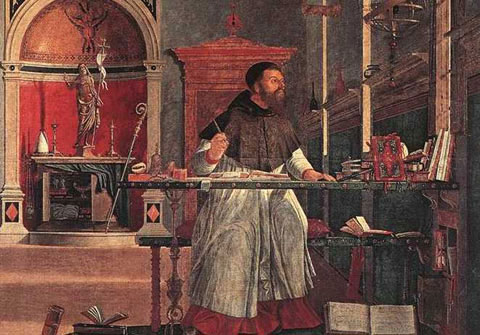
St. Augustine, bishop of Hippo
GENERAL INSTRUCTION OF THE LITURGY OF THE HOURS
Congregation for Divine Worship
Chapter II-III. Office of Readings
55. The office of readings seeks to provide God’s people, and in particular those consecrated to God in a special way, with a wider selection of passages from sacred Scripture for meditation, together with the finest excerpts from spiritual writers. Even though the cycle of scriptural readings at daily Mass is now richer, the treasures of revelation and tradition to be found in the office of readings will also contribute greatly to the spiritual life.
Tags: mary, Nov. 21, st augustine, The Presentation of the Blessed Virgin Mary
This entry was posted on Sunday, November 23rd, 2014 at 5:59 am
You can follow any responses to this entry through the RSS 2.0 feed.
Episode 31- The Holy Rule of St. Benedict: A Spiritual Path for Today’s World with Fr. Mauritius Wilde O.S.B.,  PhD.
PhD.
“The Life of St. Benedict pt 4”
We continue our conversation on the life of St. Benedict by using the biography penned by St. Gregory the Great. This episode St. Benedict is visited a priest on Easter Sunday morning in the cave and is called from his seclusion.
[powerpress]
From the Life of Our Most Holy Father St. Benedict by St. Gregory the Great:

 CHAPTER I.
Now when it pleased Almighty God that Romanus should rest from his labours, and that the life of Benedict should be manifest to the world for an example to all men, that the candle set upon a candlestick might shine and give light to the whole Church of God, our Lord vouchsafed to appear to a certain Priest living far off, who had make ready his dinner for Easter Day, saying to him: “Thou hast prepared good cheer for thyself, and My servant in such a place is famished for hunger.†Who presently rose up, and on the solemn day of Easter went towards the place with such meat as he had provided for himself, where seeking the man of God, amongst craggy rocks, winding valleys and hollow pits he found him hid in a cave. Then after prayers, and blessing the Almighty Lord, they sat down, and after some spiritual discourse the Priest said: “Rise, and let us take our refection, for this is Easter Day.†To whom the man of God answered: “I know it is Easter, because I have found so much favour as to see thee.†(For not having a long time conversed with men, he did not know it was Easter Day.) The good Priest did therefore again affirm it, saying: “Truly this is the day of our Lord’s Resurrection, and therefore it is not fit that you should keep abstinence, and for this cause I am sent that we may eat together that which Almighty God hath bestowed on us.†Whereupon blessing God, they fell to their meat. Their discourse and dinner ended, the Priest returned to his Church.
 For more information about the ministry of the the Missionary Benedictines of Christ the King Priory in Schuyler, Nebraska visit here:
For more information about the ministry of the the Missionary Benedictines of Christ the King Priory in Schuyler, Nebraska visit here:
Tags: catholic, catholic podcast, catholic prayer, cathollc spirituality
This entry was posted on Tuesday, November 18th, 2014 at 12:22 pm
You can follow any responses to this entry through the RSS 2.0 feed.
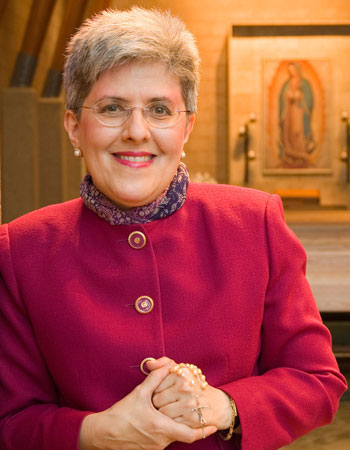 No one I know has the passion, zeal and just shear love for the Holy Souls in Purgatory like Susan Tassone! She has an incredible depth of knowledge on the subject. You will never feel you are without companinons on the journey after you hear Susan plead the Holy Souls cause.
No one I know has the passion, zeal and just shear love for the Holy Souls in Purgatory like Susan Tassone! She has an incredible depth of knowledge on the subject. You will never feel you are without companinons on the journey after you hear Susan plead the Holy Souls cause.
[powerpress]
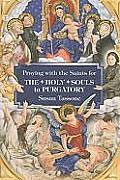 Â You can find the book here
 You can find the book here
Let the saints inspire you to intercede for the holy souls in purgatory!
Throughout the ages the devotions, prayers, and practices of the Communion of Saints have been offered up on behalf of souls in purgatory, the Church Suffering. The saints ardent desire to intercede for the holy souls impelled them to pray ceaselessly for their eternal rest.
This inspiring book shows how you can join the saints in this act of divine charity, thereby attaining spiritual gifts for acts done for the souls that cry out to us for relief.
–See the firsthand experiences that saints have had with the holy souls
–Learn the power of intercessory prayer on behalf of souls in purgatory
–Seasonal Devotions & Spiritual Aids prepare all members of the family to plead the cause of souls
Tags: catholic, catholic podcast, catholic prayer, cathollc spirituality, holy souls, holy souls in purgatory, Susan Tassone
This entry was posted on Sunday, November 2nd, 2014 at 12:42 am
You can follow any responses to this entry through the RSS 2.0 feed.
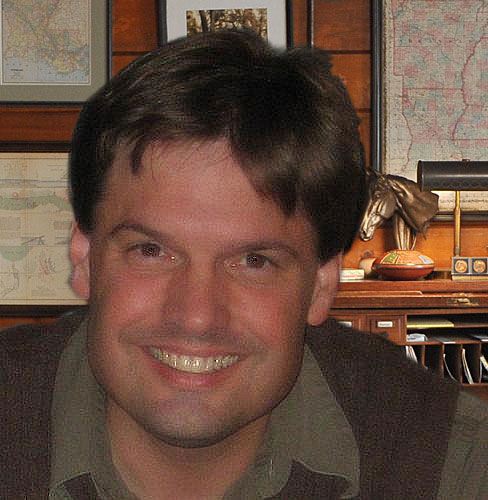 [powerpress]
[powerpress]
In this conversation, we discuss the significance of St. John of the Cross and his relationship with St. Teresa of Avila. For more information visit our page dedicated to pilgrimage at:  www.pilgrimage.discerninghearts.comÂ
Five hundred years ago, on March 28, a great mystic, founder, reformer, and doctor of the Church was born. From March 27 to April 6, 2015 you are invited to join Kris McGregor of Discerning Hearts on a spiritual journey through Holy Week and Easter in the footsteps of Saint Teresa of Avila in Spain.  Fr. Giles Dimock O.P. will serve as Chaplain and Dr. Anthony Lilles will be our spiritual guide for this pilgrimage.
Tags: catholic, catholic podcast, catholic prayer, cathollc spirituality
This entry was posted on Tuesday, October 28th, 2014 at 4:23 pm
You can follow any responses to this entry through the RSS 2.0 feed.
An Act of Hope and Confidence in God
[powerpress]
(thanks to Matt Willkom for sharing his vocal gifts on this prayer)
My God, I believe most firmly that Thou watchest over all who hope in Thee, and that we can want for nothing when we rely upon Thee in all things; therefore I am resolved for the future to have no anxieties, and to cast all my cares upon Thee.
People may deprive me of worldly goods and of honors; sickness may take from me my strength and the means of serving Thee; I may even lose Thy grace by sin; but my trust shall never leave me. I will preserve it to the last moment of my life, and the powers of hell shall seek in vain to wrestle it from me.
Let others seek happiness in their wealth, in their talents; let them trust to the purity of their lives, the severity of their mortifications, to the number of their good works, the fervor of their prayers; as for me, O my God, in my very confidence lies all my hope. “For Thou, O Lord, singularly has settled me in hope.” This confidence can never be in vain. “No one has hoped in the Lord and has been confounded.”
I am assured, therefore, of my eternal happiness, for I firmly hope for it, and all my hope is in Thee. “In Thee, O Lord, I have hoped; let me never be confounded.”
I know, alas! I know but too well that I am frail and changable; I know the power of temptation against the strongest virtue. I have seen stars fall from heaven, and pillars of firmament totter; but these things alarm me not. While I hope in Thee I am sheltered from all misfortune, and I am sure that my trust shall endure, for I rely upon Thee to sustain this unfailing hope.
Finally, I know that my confidence cannot exceed Thy bounty, and that I shall never receive less than I have hoped for from Thee. Therefore I hope that Thou wilt sustain me against my evil inclinations; that Thou wilt protect me against the most furious assults of the evil one, and that Thou wilt cause my weakness to triumph over my most powerful enemies. I hope that Thou wilt never cease to love me, and that I shall love Thee unceasingly. “In Thee, O Lord, have I hoped; let me never be confounded.”
From the writings of St. Claude on Prayer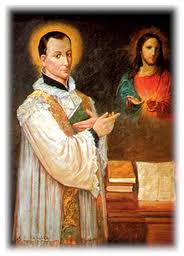
“Since by the mercy of God I feel myself somewhat drawn to prayer, I have asked of God, with a large heart, through the intercession of the Blessed Virgin, that He would give me the grace to love this holy exercise more and more, unto the hour of my death.
It is the one means for our purification, the one way to union with God, the one channel by which God may unite Himself with us, that He may do anything with us for His glory. To obtain the virtues of an apostle we must pray; to make them of use to our neighbour we must pray; to prevent our losing them while we use them in His service we must pray.
The cousel, or rather the commandment: Pray always, seems to me extremely sweet and by no means impossible. It secures the practice of the presence of God; I wish, with the help of Our Lord, to endeavour to follow it. We are always in need of God, then we need to pray always; the more we pray the more we please Him, and the more we receive.
I do not ask for those delights in prayer which God gives to who He will; I am not worthy of them, I have not strength enough to bear them. Extraordinary graces are not good for me; to give them to me would be to build on sand, it would only be pouring precious liquor into a leaking hogshead which can hold nothing. I ask of God only a solid, simple manner of prayer, which may give Him glory and will not puff me up; dryness and desolation, accompanied with His grace, are very good for me, so it seems. Then I make acts of the best kind, and with satisfaction; then I make efforts against my evil disposition, I try to be faithful to God, etc….
Above all things I am resigned to be sanctified by the way that God shall please, by the absence of all sensible delight, if He wishes it so to be, by interior trials, by continual combat with my passions.”
Tags: catholic, catholic podcast, catholic prayer, cathollc spirituality, confidence in god, desolation, evil, practice of the presence of god, prayer, union with god, virtues
This entry was posted on Monday, October 20th, 2014 at 7:39 pm
You can follow any responses to this entry through the RSS 2.0 feed.
We will be praying with and learning from Blessed John Henry Newman for many, many years to come.  Joseph Pearce has been a wonderful student, as well as instructor of (or should I say “illuminator of”) the life and work of  this great man, John Henry Newman, and who is now a bona fide memeber of the Cloud of Witnesses. It’s ALWAYS a joy to talk with Joseph, but it was really fantastic to speak with him in particular about Blessed John Henry Newman and the new books released by Ignatius Press to help us grow in our awareness of him!
Joseph Pearce has been a wonderful student, as well as instructor of (or should I say “illuminator of”) the life and work of  this great man, John Henry Newman, and who is now a bona fide memeber of the Cloud of Witnesses. It’s ALWAYS a joy to talk with Joseph, but it was really fantastic to speak with him in particular about Blessed John Henry Newman and the new books released by Ignatius Press to help us grow in our awareness of him!
[powerpress]
Tags: Blessed John Henry Newman, catholic, catholic podcast, catholic prayer, cathollc spirituality, ignatius press, john henry newman, joseph pearce, work
This entry was posted on Thursday, October 9th, 2014 at 10:49 am
You can follow any responses to this entry through the RSS 2.0 feed.
Episode 29- The Holy Rule of St. Benedict: A Spiritual Path for Today’s World with Fr. Mauritius Wilde O.S.B.,  PhD.
PhD.
“The Life of St. Benedict pt 2”
We begin the reflection of the life of St. Benedict by using the biography penned by St. Gregory the Great. This episode continues the teaching on detachment, particularly from our earthly mothers.
[powerpress]
From the Life of Our Most Holy Father St. Benedict by St. Gregory the Great:

 CHAPTER I.
Benedict having now left the schools resolved to betake himself to the desert, accompanied only by his nurse who most tenderly loved him. Coming therefore to a place called Affile, and remaining for some time in the Church of St. Peter by the charitable invitement of many virtuous people who lived there for devotion, so it chanced that his nurse borrowed of a neighbour a sieve to cleanse wheat, which being left carelessly upon the table was found broken in two pieces. Therefore on her return finding it broke, she began to weep bitterly because it was only lent her. But the religious and pious boy, Benedict, seeing his nurse lament was moved with compassion, and taking with him the two pieces of the broken sieve, with tears he gave himself to prayer, which no sooner ended, but he found the sieve whole, and found not any sign that it had been broken. Then presently he restored the sieve which had been broken, whole to his nurse, to her exceeding comfort. This matter was divulged unto all that lived thereabout, and so much admired by all, that the inhabitants of that place caused the sieve to be hanged up in the Church porch, that not only those present, but all posterity might know with how great gifts of grace Benedict had been endowed from the beginning of his conversion. The sieve remained to be seen for many years after, and hung over the Church door even until the times of the Longobards.
But Benedict more desirous to suffer afflictions than covetous of praise; and rather willing to undergo labours for the honour of God, than to be extolled with the favours of this world, fled secretly from his nurse to a remote place in the desert called Subiaco, distant about forty miles from Rome, in which a fountain springing with cool and crystal waters, extendeth itself at first into a broad lake, and running farther with increase of waters becometh at the last a river.
 For more information about the ministry of the the Missionary Benedictines of Christ the King Priory in Schuyler, Nebraska visit here:
For more information about the ministry of the the Missionary Benedictines of Christ the King Priory in Schuyler, Nebraska visit here:
Tags: catholic, catholic podcast, catholic prayer, cathollc spirituality
This entry was posted on Saturday, October 4th, 2014 at 3:36 pm
You can follow any responses to this entry through the RSS 2.0 feed.
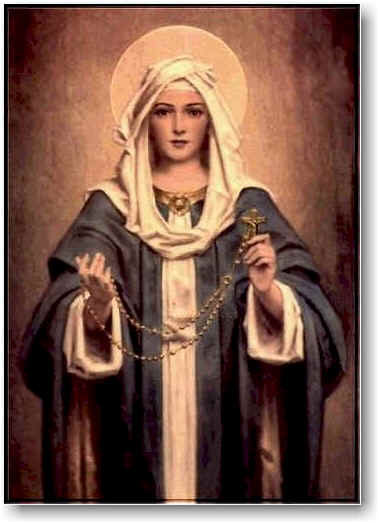 Outside of the Sacramental prayers of the Church, for me, there is no other prayer more important then the prayerful recitation of the Holy Rosary of the Blessed Virgin Mary.
Outside of the Sacramental prayers of the Church, for me, there is no other prayer more important then the prayerful recitation of the Holy Rosary of the Blessed Virgin Mary.
Our late great Holy Father, St. John Paul II put it beautifully in His Apostolic Letter On the Rosary of the Virgin Mary:
“A path of contemplation”
“But the most important reason for strongly encouraging the practice of the Rosary is that it represents a most effective means of fostering among the faithful that commitment to the contemplation of the Christian mystery which I have proposed in the Apostolic Letter Novo Millennio Ineunte as a genuine “training in holinessâ€: “What is needed is a Christian life distinguished above all in the heart of The Rosary belongs among the finest and most praiseworthy traditions of Christian contemplation. Developed in the West, it is a typically meditative prayer, corresponding in some way to the “prayer of the heart†or “Jesus prayer†which took root in the soil of the Christian East.”- His Apostolic Letter On the Rosary of the Virgin Mary
Please take some time to check out the Discerning Hearts “Holy Rosary Page”
Audio mp3 download/podcasts of the Holy Rosary
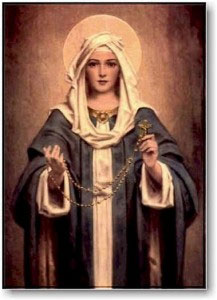 Joyful Mysteries
Joyful Mysteries
[powerpress]
Sorrowful Mysteries
[powerpress url=”http://www.old.discerninghearts.com/Devotionals/Rosary-Sorrowful-Mysteries.mp3″]Download (right click & choose “Save Link As”)
Luminous Mysteries
[powerpress url=”http://www.old.discerninghearts.com/Devotionals/Rosary-Luminous-Mysteries.mp3″]Download (right click & choose “Save Link As”)
Glorious Mysteries
[powerpress url=”http://www.old.discerninghearts.com/Devotionals/Rosary-Glorious-Mysteries.mp3″]Download (right click & choose “Save Link As”)
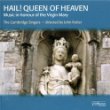
meditative music provided by
Â
Tags: Apostolic Letter, Apostolic Letter Novo Millennio Ineunte, catholic, catholic podcast, catholic prayer, cathollc spirituality, the Blessed Virgin Mary, The Virgin Mary, virgin mary
This entry was posted on Wednesday, October 1st, 2014 at 12:21 am
You can follow any responses to this entry through the RSS 2.0 feed.

